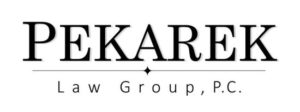Big inheritance? Win the lottery? Big legal settlement? Here is some advice from a Allegany County resident
I remember the conversation well. Riding in the car with a friend, enjoying the kind of free flowing banter old friends have and the topic came up ‘what amount of money would have to come your way to be life-changing.’ After some back and forth, we settled on $150,000 as pay-off-all-debts and maybe retire-a-little-early life changing.
Of course, we wondered what it’d would be like to experience an unexpected windfall like that. Everyone ponders this sometime (a Dollar and a Dream, right?), perhaps when some inventor hits on the next great thing, or the Mega Millions and Powerball are supersized, or a lucky local wins the lottery, as happened recently.

What’s it like? I’m no expert (books have been written about this) but it happened to me, and I can share a bit from my experience. In my case, it wasn’t a lottery, but an estate gift from a relative who lived modestly and invested well and did not talk about it. The unexpected gave me well more than the life changing figure my friend and I landed on years back, but way, way (add a lot more ways to this) less than our fortunate recent lottery winner.
As odd as it surely sounds, while it’s a wonderful blessing a windfall, like a new baby or buying a house, can be stressful. Its exciting and sobering, it makes life easier, and it makes it more complicated. Taxes change; insurance needs change; you should have a lawyer now; a financial advisor, too. New choices and decisions emerge, obligations loom large, and these aren’t always easy or obvious. Who should you tell, and why or why not? Major surprise to me – an inheritance can feel like an heirloom to be admired and not to be messed with and definitely not screwed up.
I’ve come to believe that a windfall reveals one’s ‘spending personality.’ Stories of lottery winners who’ve quickly burned through huge amounts of money like these Mega Millions, Powerball, and Lottery Winners Who Lost Every Penny (businessinsider.com) are informative and easy to find online. Check these out if you hit the lottery.
I have dealt with the opposite dynamic. My wish is to help out my kids and do something good for the county, but I’ve had to reluctantly accept that sitting on resources under a leaky roof to accomplish that is as foolish as buying stuff I don’t need.
My kids, they tell me to spend some money and have fun. But when you suddenly have resources after not, the internal conversation shifts from what can I do, to what should I do.
Of course, there’s a practical aspect to dealing with an unexpected windfall. There is plenty of online reading on this.
Probably the best advice I came across was, for a while, do nothing. Put the funds in a safe, accessible account, set up the POD/TOD designees, make sure the will is still relevant and then take ample time to think about what this all means, not just for now but ten or twenty years from now. It’s a good formula for avoiding hasty decisions. Then, line up your advisors.
I opted for a fee only (that is, one that doesn’t do investments) Certified Financial Planner, separate from an investment professional. A person can hold both credentials. I charged her with helping me to not do something really stupid. So far, so good. She was able to guide me in approaches to existing debt, insurance, retirement planning, and to generally be a 2nd opinion when needed.
Selecting an investment advisor proved more challenging. I talked with a bunch, all over WNY. Becoming a credentialed investment advisor takes a lot of training and time and as expected, they all seemed to know their stuff. Happily, there are excellent choices locally.
What I found mattered to me are some things not discussed much in ‘how to choose an advisor’ articles. Like, how will they communicate with me? Will they send me things to read, or call with a recommendation and look for a quick reply? One potential advisor (not local) sent me many pages of graphs and charts (without descriptions) which not only could I not grasp on my best day they sparked some tough memories of high school geometry.
I wanted to know if candidates had clients in the ‘unexpected money’ situation before, as the dynamic is different from accumulating over time. Similarly, what is their average account size and how does that compare to what I’ll bring. I don’t want to be someone’s smallest client, and I’m not sure that I want to be the largest, either.
Some advisors I met were older, and I realized that I need to know if there is a succession plan in place? Unless you like paperwork, changing advisors is no fun, so having an idea of how the advising service will look long term is something I’ll look more closely at next time around.
My CFP was able to point me to other resources – a tax preparer for example. That was very helpful.
I’ve thought about self-managing, and might still end up doing that, but I realize that it takes a lot of time and study to do it well, as there are a ton of investment options and they can be complicated (annuities, I’m looking at you) or not right for me given my age, stage in life, etc.
Lastly, if you have a nest egg you are leaving to someone who may not know, help them out a little by connecting them to a financial professional you trust. Details not needed, but it will ease the early days when they are dealing with your passing and new financial realities.
Anyone with a similar experience want to share their perspectives?

Hoping this is helpful to someone.
Name Withheld
Allegany County NY





